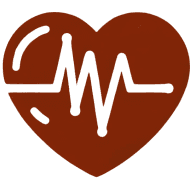What Are Counterintuitive Findings in Cardiology?
Cardiology, a field steeped in established practices, is facing paradigm shifts as recent studies reveal counterintuitive findings that challenge conventional wisdom. From the unexpected effects of dietary choices to the nuanced impacts of exercise on heart health, these revelations are reshaping how heart care is understood and administered. This exploration into the surprising twists of cardiac science offers a fresh perspective on what it means to keep the heart healthy.
- Broken Heart Syndrome Reshapes Cardiology Approach
- Statins Offer Unexpected Heart Health Benefits
- Moderate Alcohol Consumption May Protect Heart
- Omega-3 Benefits for Heart Health Debated
- Salt Reduction Not Universal for Hypertension
- Extreme Exercise May Challenge Heart Health Beliefs
Broken Heart Syndrome Reshapes Cardiology Approach
In the field of cardiology, one particularly counterintuitive finding has been the understanding of "broken heart syndrome," also known as Takotsubo cardiomyopathy. Initially, it was assumed that only severe physical stress or chronic conditions could lead to serious heart complications. However, Takotsubo cardiomyopathy shows us that acute emotional stress can also cause significant, albeit usually temporary, heart dysfunction that mimics a heart attack. This has dramatically shifted how we recognize and address the impact of both psychological and physical stress in patient care.
This discovery emphasizes the profound connection between emotional health and heart health, prompting cardiology to adopt a more holistic view. Understanding that emotional events can trigger real cardiac symptoms helps inform patient management strategies, focusing not only on the physical but also on psychological support. For health practitioners, this bridges cardiology and mental health, highlighting the importance of treating the patient as a whole – a concept that is now integral in modern medical practices.

Statins Offer Unexpected Heart Health Benefits
Statins, commonly known as cholesterol-lowering drugs, have surprised researchers with their additional heart health benefits. These medications appear to do more than just reduce cholesterol levels in the blood. Studies have shown that statins may also help reduce inflammation in the body, improve the function of the blood vessels, and stabilize plaque buildup in the arteries.
These extra benefits could explain why statins seem to be effective even in people with normal cholesterol levels. However, it's important to note that statins are not without potential side effects. Anyone considering statin therapy should consult with their doctor to weigh the potential benefits against the risks for their individual situation.
Moderate Alcohol Consumption May Protect Heart
The relationship between alcohol and heart health has been a topic of much debate in the medical community. Surprisingly, some studies suggest that moderate alcohol consumption might actually reduce the risk of cardiovascular disease. This protective effect is thought to be due to alcohol's ability to increase levels of 'good' cholesterol and reduce the formation of blood clots.
However, it's crucial to understand that these potential benefits only apply to moderate consumption, typically defined as one drink per day for women and up to two for men. Excessive alcohol use can lead to numerous health problems, including heart damage. Given the complex nature of alcohol's effects on the body, it's best to discuss personal alcohol consumption with a healthcare provider.
Omega-3 Benefits for Heart Health Debated
The role of omega-3 fatty acids in heart health has been a subject of ongoing research and debate. While these nutrients, found in fish oil and some plant sources, were once thought to be universally beneficial for cardiovascular health, recent studies have painted a more complex picture. Some research suggests that omega-3s may help reduce the risk of heart attacks and strokes, particularly in people with existing heart disease. However, other studies have failed to find significant benefits, leading to controversy in the field.
The conflicting results may be due to differences in study design, dosage, or the specific types of omega-3s used. Despite the uncertainty, many health organizations still recommend consuming omega-3-rich foods as part of a balanced diet. For personalized advice on omega-3 supplementation, it's best to consult with a healthcare professional.
Salt Reduction Not Universal for Hypertension
The common wisdom that all people with high blood pressure should drastically cut their salt intake has been challenged by recent research. While reducing sodium consumption can lower blood pressure in many individuals, studies have shown that this approach might not benefit everyone equally. Some people appear to be more 'salt-sensitive' than others, meaning their blood pressure responds more dramatically to changes in salt intake.
Furthermore, very low sodium levels can potentially lead to other health issues in certain individuals. It's also worth noting that other dietary factors, such as increasing potassium intake, may be just as important as reducing sodium for managing blood pressure. Given these complexities, it's crucial for people with hypertension to work closely with their healthcare providers to develop a personalized approach to diet and lifestyle changes.
Extreme Exercise May Challenge Heart Health Beliefs
The idea that more exercise is always better for heart health has been called into question by research on extreme endurance athletes. While regular physical activity is undoubtedly beneficial for cardiovascular health, some studies suggest that excessive endurance exercise might actually have negative effects on the heart. Prolonged, intense exercise over many years may lead to changes in heart structure and function that could potentially increase the risk of certain heart problems. This doesn't mean that endurance sports are inherently dangerous, but rather that there might be an upper limit to the cardiovascular benefits of exercise.
It's important to note that for the vast majority of people, the health benefits of exercise far outweigh any potential risks. However, these findings underscore the importance of balanced approach to physical activity. If you're considering starting an intense exercise regimen, it's advisable to consult with a healthcare provider first.

